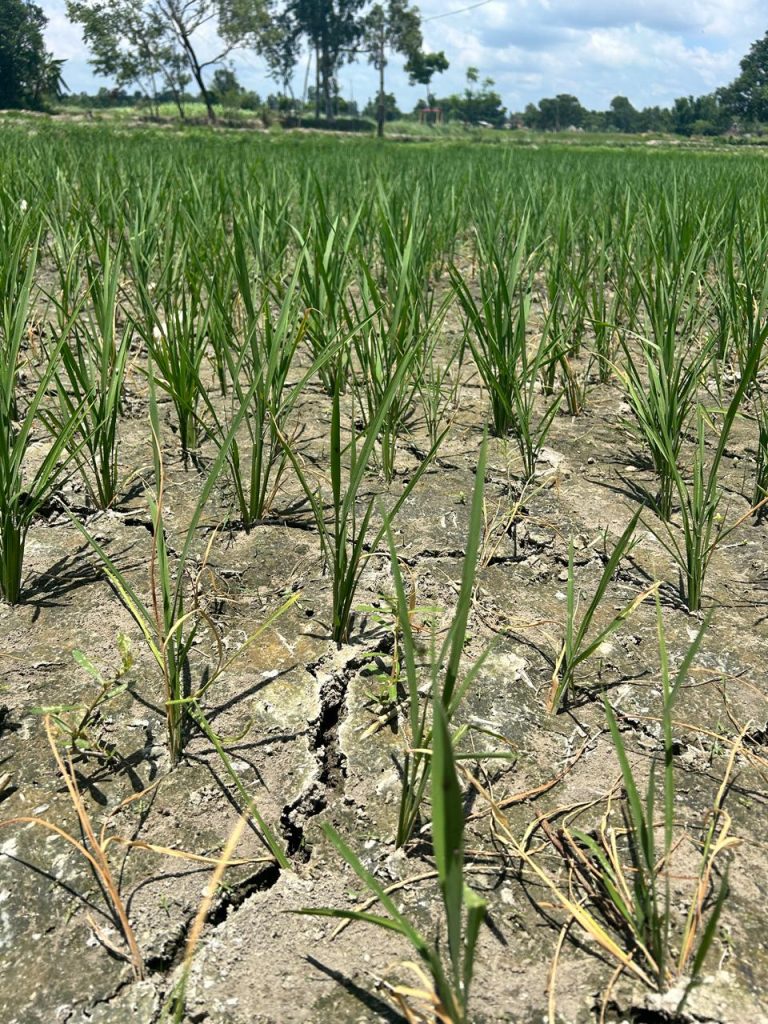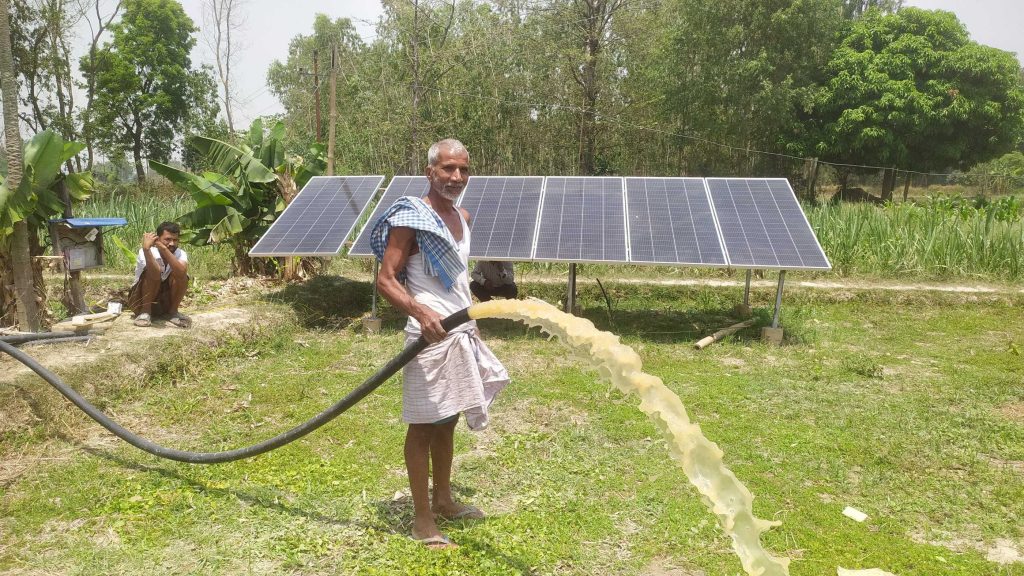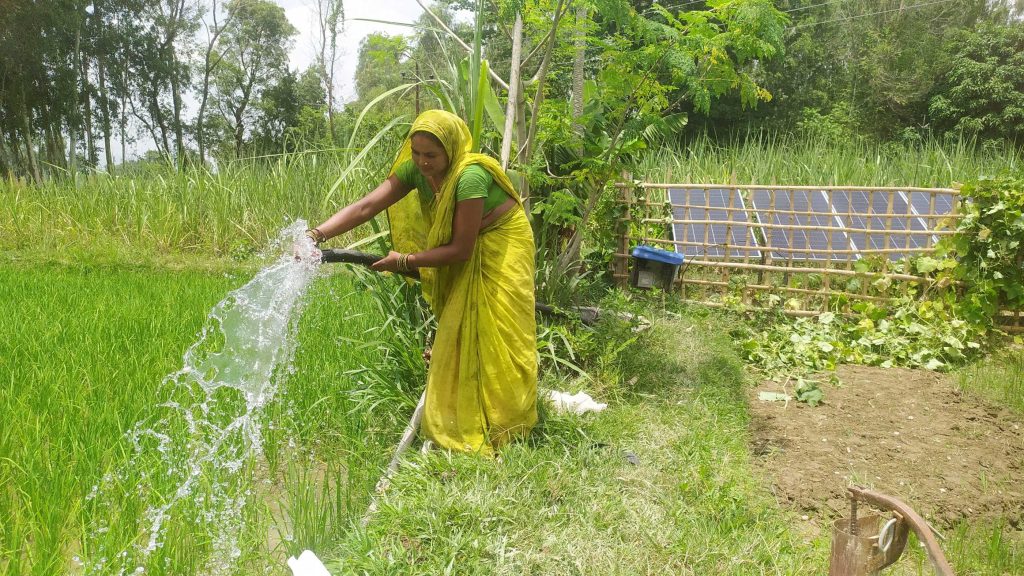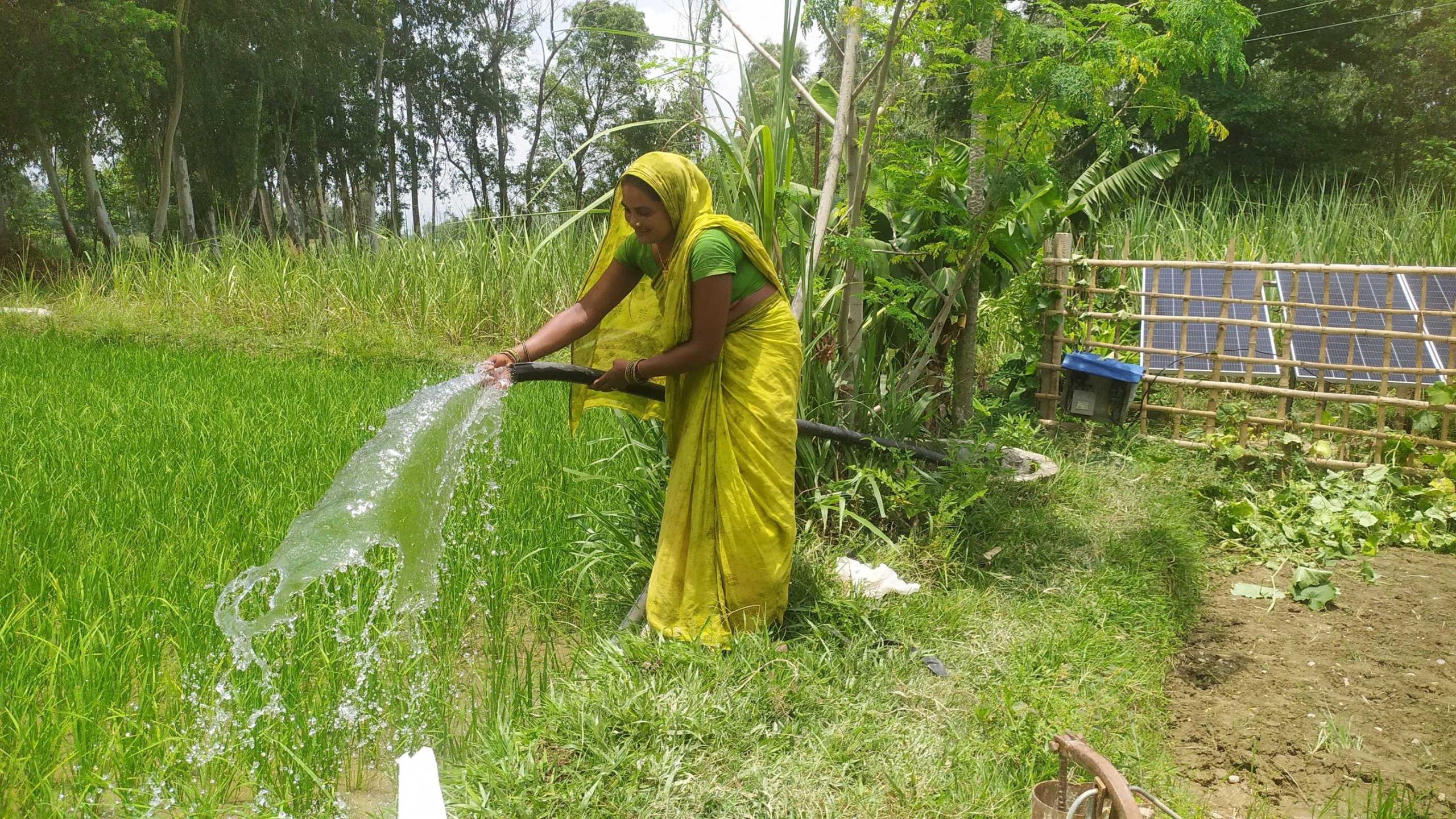Across Madhesh province, rice paddies stretch far and wide, feeding families and sustaining livelihood of people. But in recent months, these once-green fields have turned dry and cracked as Madhesh faces its worst drought in decades. On July 10, 2025, the province was officially declared a drought-affected area, a harsh reality felt by every farmer. Long dry periods and almost no rain have left farmers struggling. Groundwater levels have dropped, tube-wells have dried up, and the burning sun has wilted young rice plants. In Madhesh, where rice feeds families and supports livelihoods, this drought puts both crops and incomes at risk. Without enough water, farmers face the chance of a poor harvest.

And this climate stress was identified long ago when the Climate Smart Village-Nepal (CSV-N) project facilitated a training program for the local communities from Siraha and Saptari districts. Using the Climate Vulnerability and Capacity Analysis (CVCA), 95% of participating farmer’s groups had identified drought as their greatest hazard.
Yet even in these dry times, hope is taking root through new, smart solutions. Even in the severe hardship, a powerful story of hope and resilience emerges. For the past one year, the CSV-N project has been a strong support for farmers in six local governments of Siraha and Saptari districts. Led by the National Farmers Group Federation, Nepal and supported by CARE Nepal, this project helps communities tackle climate change and fight their biggest challenge through water smart, carbon smart, energy smart, weather smart and knowledge smart technologies.
Amidst this climate crisis, water-smart technologies have proved to be the most promising for farmers. Water smart technologies like deep borings and solar irrigation, farmers somehow are managing water for their crops even when no rain falls. Even during this harsh drought, these smart solutions have helped farmers water about 10 hectares of land, saving their rice fields and giving them hope in these dry times.
Besides irrigation, the project has brought in drip irrigations and polyhouses so farmers can grow off-season vegetables in an organic way and use every drop wisely. Fields that were once dry and cracked now show green plants again proving that with the right support, farming can survive even in tough times.

Encouraged by this impact, CSV-N plans to expand its reach in the coming year by installing water-smart technologies for 20 additional households, investing NPR 600,000 (Approx 4,362 usd) per household. This expansion will help more farmers cope with water scarcity, protect their crops, and secure their livelihoods.
At the time when the rains have failed, the farmers of Madhesh are proving that resilience, innovation, and community-driven action can turn dry fields into stories of hope, one drop at a time.
“I’m very happy that the introduction of solar irrigation has allowed me to irrigate my 3 bigha of land and transplant rice even during dry spells, with minimal reliance on electricity. Without solar, I would have had to leave my land fallow, which would have severely impacted our food security.” says Rina Mahato, a local farmer from Ram Janaki Farmers' Group in Dhangadhimai of Siraha.

While big results may take time, the project is set to bring real, lasting change over its four-year journey.
Story by: Dipty Timsina, MEAL Officer, National Farmers' Group Federation, Nepal

